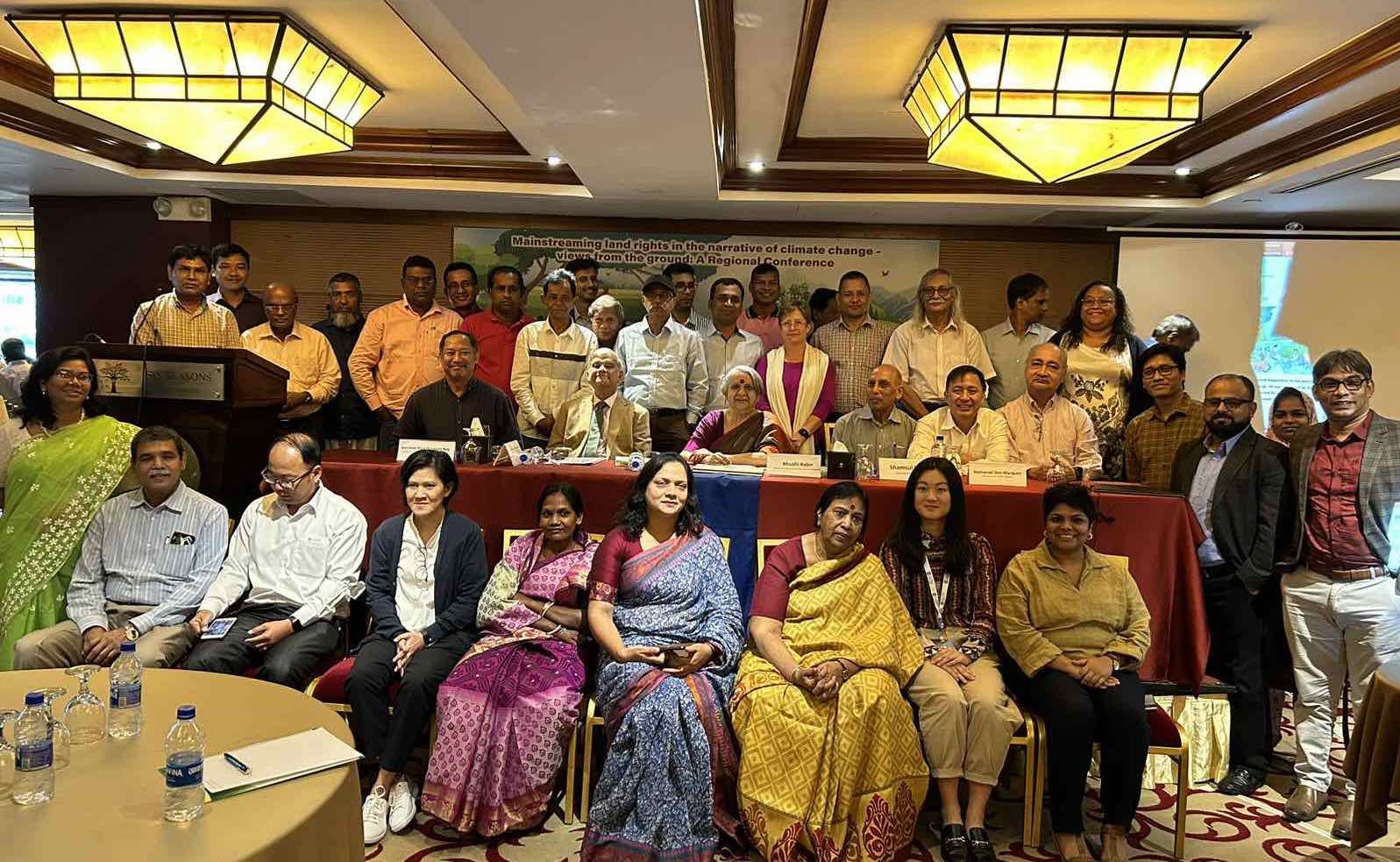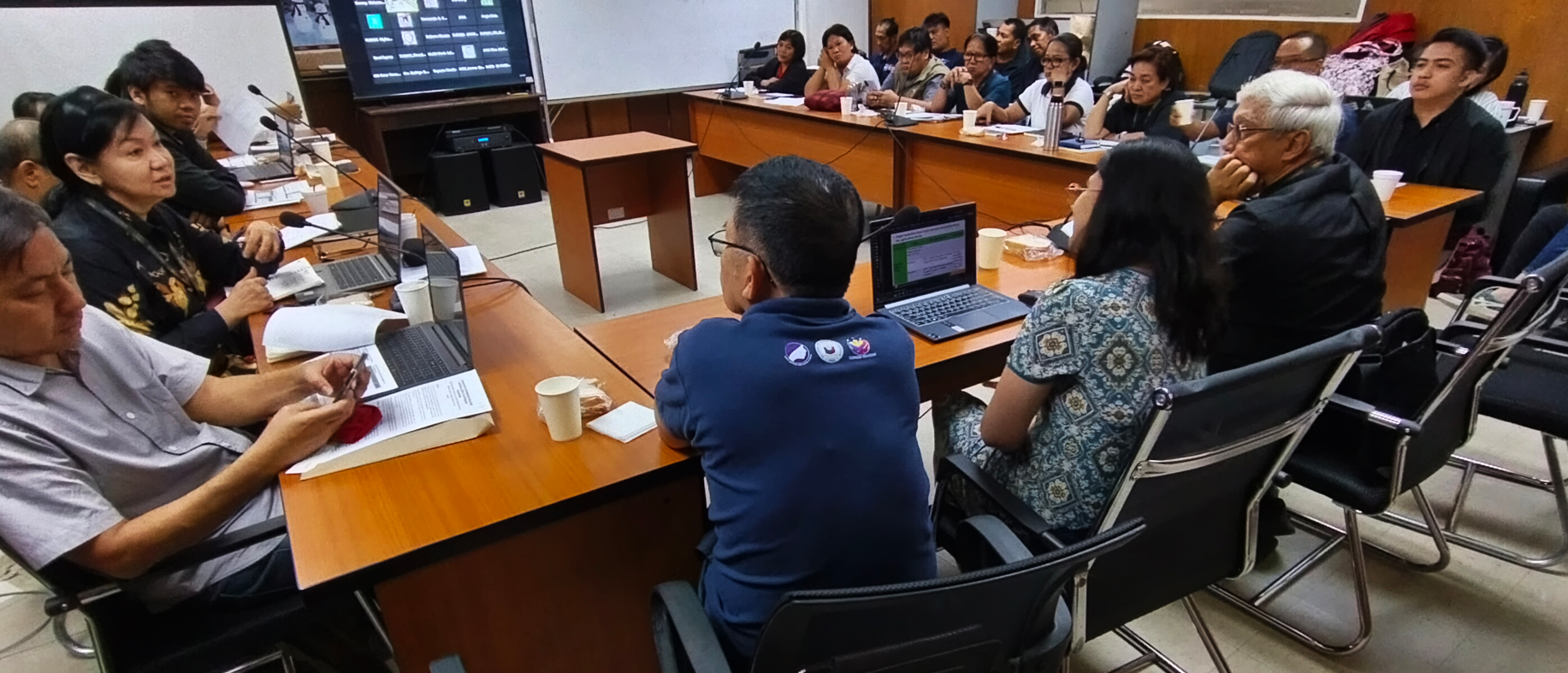


Land access and land tenure security have historically been missing from discussions, policies and programs to effectively address and mitigate the impacts of climate change. As a result, the landless rural poor sectors, including those whose land tenure rights are weak, are perennially left out of climate response planning and programming.
On 7 May 2024, the Asian NGO Coalition organized a Learning Event on the Philippine National Adaptation Plan (NAP) and the Nationally Determined Contribution (NDC) Implementation Plan in order to explore ways in which land rights can be incorporated in these documents. The event was supported by the Global Land Tool Network (GLTN).
 The event was participated in by partner civil society organizations (CSOs) and representatives from sectors such as farmers, fisherfolk, indigenous peoples, and the urban poor. Jerome Ilagan, Chief of the Policy Research and Development Division of the Climate Change Commission (CCC), gave an overview of Overview of the Philippines’ NAP and NDC. Maria Jannell Feliz Talavera, Project Development Officer of the Department of Agriculture (DA)’s Climate Resilient Agriculture Office, discussed how the government is working to transform agriculture to promote low-carbon and climate-resilient food systems.
The event was participated in by partner civil society organizations (CSOs) and representatives from sectors such as farmers, fisherfolk, indigenous peoples, and the urban poor. Jerome Ilagan, Chief of the Policy Research and Development Division of the Climate Change Commission (CCC), gave an overview of Overview of the Philippines’ NAP and NDC. Maria Jannell Feliz Talavera, Project Development Officer of the Department of Agriculture (DA)’s Climate Resilient Agriculture Office, discussed how the government is working to transform agriculture to promote low-carbon and climate-resilient food systems.
The NAP, which covers the period 2023 to 2050, envisions the country building its resilience in order to minimize climate-related losses and damages as well as increasing its adaptive capacity towards transformative resilience and sustainable socioeconomic development by 2050.
The development of the NAP followed a stakeholder-driven approach, and is a product of the collective effort and knowledge of local experts. Consultations with CSOs were part of the NAP’s formulation.
The NAP has adopted five cross-cutting strategies, including (1) strengthening infrastructure resilience; (2) safeguarding livelihoods with social protection and regulations; (3) empowering local governments and communities to take adaptation action; (4) mainstreaming integrated adaptation governance; and (5) scaling up nature-based solutions.
The draft implementation plan of the NAP was submitted to the Office of the President in February 2024 for review. From there, the NAP will be finalized and officially circulated.
The NDC Implementation Plan was adopted in 2021 and details the necessary actions, costs, phasing and implementation arrangements for the Philippines to deliver its NDC. The NDC Implementation Plan has identified five sectors where priority Policies and Measures (PAMs) will be implemented to reduce or avoid emissions. Agriculture is one of these sectors, along with transport, energy, waste and industrial processes and product use.
The DA commits to playing a role in meeting the country’s NDC target by promoting adaptation with mitigation co-benefit in the agriculture sector. Its strategies include: (1) target reduction of emissions from major agriculture sources; measures to reduce the carbon footprint of agricultural products, including adoption of technology; and carbon sequestration measures, among others.
Land rights are not currently highlighted in the NAP, the NDC Implementation Plan, or in the DA’s emission reduction strategies. Nevertheless, both government agencies expressed commitment to work with CSOs, people’s organizations (POs), and other basic sectors to ensure that land rights are incorporated in the plans’ implementation.
More future collaboration between ANGOC and its network and the government agencies is envisioned in order to highlight land access and land tenure as an essential component of effective climate change mitigation and adaptation programs.
